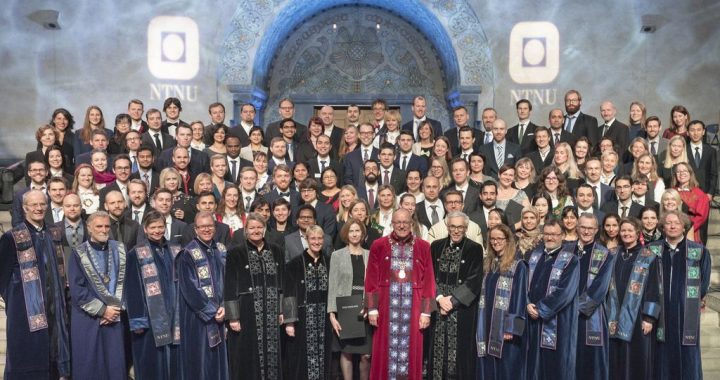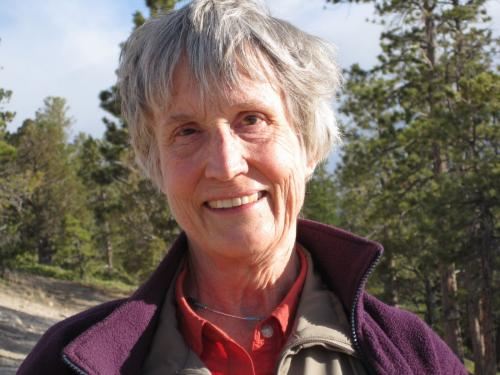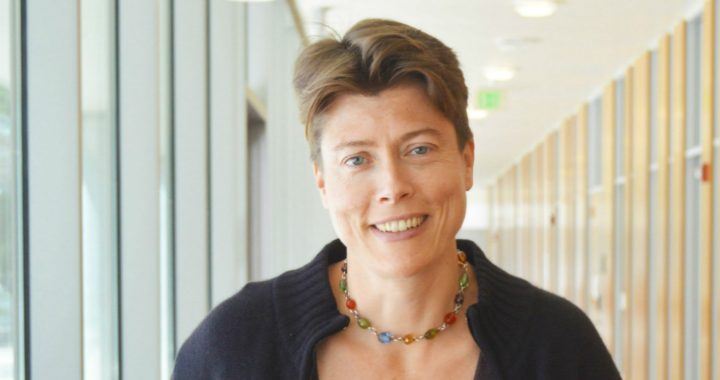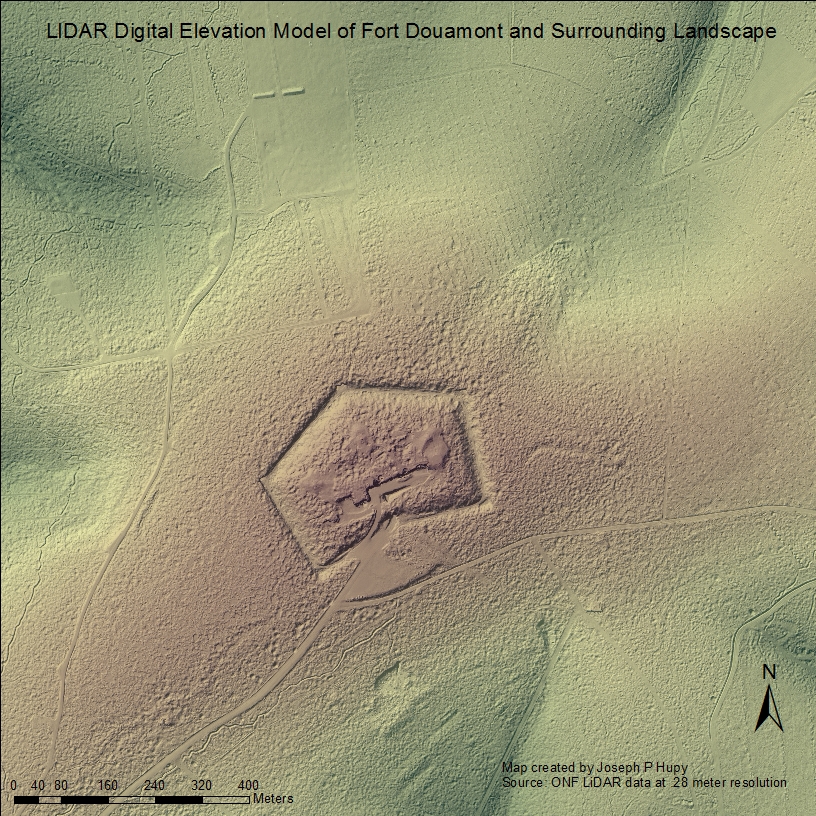In March 2018, Harvard geneticist David Reich published a New York Times op-ed, entitled “How Genetics is Changing Our Understanding of ‘Race.’” In the piece, Reich argues that geneticists “are learning that while race may be a social construct, differences in genetic ancestry that happen to correlate to many of today’s racial constructs are real.”
The article prompted 67 natural and social scientists, legal scholars and public health researchers to draft an open letter in response to Reich’s claims. The letter, published by Buzzfeed, asserts that Reich misrepresents critiques of of the use of ‘race’ and ‘population’ in biomedical and genetic research. It urges collaboration between geneticists and their social science and humanities colleagues so that more careful thinking and writing can be brought to bear upon consequential and controversial questions about how human differences should be ordered and understood.
In following weeks and months, a debate took shape. This page will continue to follow this debate. It will serve as repository for related stories and will be regularly updated with new information and new links.
We will pay particular attention to how this debate is playing out differently in different countries. Professor of Sociology and Science and Justice Director Jenny Reardon, who helped draft the Buzzfeed response, and who just finished a second book on the condition of living with genomes, has participated in this continuing discussion from Germany. There she is collaborating with historians and population geneticists who are responding to efforts to re-introduce into Germany genetic definitions of human groups. Since WWII, it has been taboo in the German context to use the term Rasse (the German word for ‘race’) to refer to humans. However, many major German language media outlets are mobilizing the Reich op ed to argue that this taboo should end. To give the reader some context for this current debate, in addition to the news coverage, we provide links to relevant academic articles. We also provide links to coverage in other parts of the world.
In May 2019, Angela Saini published her book Superior: The Return of Race Science. This book takes up questions of scientific racism and its history, as well as its more recent relationship with genetics and genomics. Reviews and responses to the book are also linked and covered here.
Resources (updated regularly, last updated May 30, 2019):
Op-Ed and Initial Response:
Reich’s Op-Ed:
- Opinion: How Genetics is Changing Our Understanding of “Race.” – The New York Times, March 23, 2018
- Opinion: How to Talk about Race and Genomics – The New York Times, March 30, 2018
- Reich’s response to readers’ comments
- Opinion: How to Talk about Race and Genomics – The New York Times, March 30, 2018
Buzzfeed response co-authored by natural and social scientists, legal scholars, and public health researchers:
- How Not to Talk About Race and Genomics – Buzzfeed, March, 30, 2018
Responses in the Popular Press:
United States:
- Sam Harris, Charles Murray, and the Allure of Race Science – Vox, March 27, 2018
- Ezra Klein discusses a debate between himself and Sam Harris reignited by Reich’s op-ed, arguing, in short, that “in this country, given our history, discussions about race and IQ need more care and context than they get.”
- The Sam Harris Debate – Ezra Klein and Sam Harris debate on The Ezra Klein Show podcast.
- Ezra Klein discusses a debate between himself and Sam Harris reignited by Reich’s op-ed, arguing, in short, that “in this country, given our history, discussions about race and IQ need more care and context than they get.”
- Denying Genetics is Not Shutting Down Racism, It is Fueling it – New York Magazine, March 30, 2018
- Andrew Sullivan agrees with Reich’s op-ed, and argues that dismissing science as “racist” helps fuel racism.
- Race, Genetics and a Controversy – The New York Times, April 2, 2018
- A series of letters to the editor in response to Reich’s op-ed.
- Scientific Racism Isn’t ‘Back’: It Never Went Away – The Nation, April 6, 2018
- Edward Burmila argues that Reich’s op-ed is merely the latest example of scientific racism, which is finding new purchase in the current political climate.
- What Happens When Geneticists Talk Sloppily About Race – The Atlantic, April 25, 2018
- Ian Holmes argues that biologists’ use of race as a category often reinforces historical biases.
- Stop Talking about Race and IQ – Slate, April 27, 2018
- William Saletan reflects on his past as a believer in the scientific validity of racial IQ disparities and argues that “the genetics of intelligence” and “the genetics of race” are, and should remain, separate fields of research.
- Race Has a Place in Human Genetics Research, Philosopher Argues – Penn Today, May 2, 2018
- Michelle Berger profiles Penn philosopher Quayshawn Spencer, who uses semantic theory to reconcile US Census racial categories with population geneticists’ ancestry groups and encourages collapsing the former into the latter.
- Push for Forensic DNA Phenotyping, Ancestry Testing in Germany Raises Discrimination Concerns – Genome Web, May 4, 2018
- Turna Ray describes the concerns surrounding legislation introduced in the Bavarian parliament that would allow DNA collection from ‘dangerous’ individuals and forensic DNA phenotyping of crime scene samples. Chief among these concerns is discrimination against immigrants.
- Observations: “Plug and Play” Genetics, Racial Migrations and Human History – Scientific American, May 29, 2018.
- John Edward Terrell discusses Reich’s book and argues that writing about “populations,” “migration,” and “admixture” reinforces ideas about separate human groups in potentially dangerous ways.
- James Watson Had a Chance to Salvage His Reputation on Race. He Made Things Worse. – The New York Times, January 1, 2019.
- Scientists debate the reasons for James Watson’s re-assertion that differences in IQ between “blacks and whites” are genetic. Is this just an “old man” out of step with his time, or is he part of a dominant but rarely spoken view in genomics, a view that appeared to be bolstered in the spring by David Reich’s editorial in The New York Times?
- Is Ancient DNA Research Revealing New Truths — or Falling Into Old Traps? – The New York Times Magazine, January 17, 2019.
- Gideon Lewis-Kraus explores how Reich’s ancient DNA work has challenged existing archaeological consensus and transformed the academic landscape. He points out that the pressure to work with the handful of powerful ancient DNA labs, which he calls an “oligopoly,” is strong enough to create a “smash-and-grab” environment of “suspicion, anxiety, and paranoia.” Lewis-Kraus also characterizes this as setting up a divide between “those [like Reich] bewitched by grand historical narratives… and those who wearily warn that such adventures rarely end well.” He thoughtfully explores the practical agendas of racialized histories and forms of knowledge that claim to say who people “really” are and where they are “really” from, describes some of the scientific concerns and broader controversy surrounding ancient DNA research in particular, and ultimately connects the claims in Reich’s op-ed to his “broad brush” view of history.
- Response: Letter in response to Jan. 17 article in The New York Times – David Reich, January 19, 2019
- Reich responds to Lewis-Kraus, admitting that ancient DNA research faces unresolved ethical issues but also arguing that Lewis-Kraus misapprehends the rigor and nuance of the science to make his argument. Reich argues that his research has “rendered racist and colonialist narratives untenable.”
- Response: Letter in response to Jan. 17 article in The New York Times – David Reich, January 19, 2019
- Gideon Lewis-Kraus explores how Reich’s ancient DNA work has challenged existing archaeological consensus and transformed the academic landscape. He points out that the pressure to work with the handful of powerful ancient DNA labs, which he calls an “oligopoly,” is strong enough to create a “smash-and-grab” environment of “suspicion, anxiety, and paranoia.” Lewis-Kraus also characterizes this as setting up a divide between “those [like Reich] bewitched by grand historical narratives… and those who wearily warn that such adventures rarely end well.” He thoughtfully explores the practical agendas of racialized histories and forms of knowledge that claim to say who people “really” are and where they are “really” from, describes some of the scientific concerns and broader controversy surrounding ancient DNA research in particular, and ultimately connects the claims in Reich’s op-ed to his “broad brush” view of history.
- Genetics and Race: How Do We Have This Awkward Conversation? – Genetic Literacy Project, February 13, 2019.
- Patrick Whittle argues that “genetic facts — including evidence of genetic differences between racial populations — carry no necessarily social or political implications,” and that confirmation of human difference may aid in designing policies to reduce inequalities. He also suggests that human geneticists should acknowledge the history and politics of ideas of race and understand the motives of what he calls “the opposition.”
Germany:
- Genetik im Zentrum einer neuen “Rassen”-Debatte (Genetics at the Center of a new “Rassen” Debate) – Frankfurter Allgemeine Zeitung, April 11, 2018 (download pdf [in German])
- In an op-ed, Axel Meyer argues that Reich is brave to speak the truth that genomics shows that races differ, and those genetic differences “may be responsible for physiological and cognitive differences.”
- Wissenschaftler streiten über den Begriff “Rasse” (“Scientists argue over the term ‘race'”) – Deutschlandfunk Kultur, April 12, 2018
- Von Thomas Reintjes discusses the debate and argues that there are “more appropriate terms than race” for discussing genetic grouping and results.
- Genforschung und Rassismus: Auseinandersetzung statt autokratischer Wissenschaft (“Genetic Research and Racism: Discussion not Autocratic Science”) – Radio Dreyeckland, April 20, 2018
- In a radio interview in Freiburg, Jenny Reardon discusses the Reich op-ed and subsequent response.
- Lost in Translation: Man darf den US-Begriff “race” nicht mit dem deutschen Wort “Rasse” verwechseln (Lost in Translation: Why the U.S. word “race” is not to be translated with the German word “Rasse”). – Süddeutsche Zeitung, May 17, 2018 (Download pdf [English translation])
- A group of social scientists (including SJRC Director Jenny Reardon), humanities scholars, and natural scientists explain how the differences between the English word race and the German word Rasse expose some of the difficulties of translating both Reich’s op-ed and the broader debate about race and genomics into different cultural and linguistic contexts.
Switzerland:
-
Der Genetiker David Reich löst in den USA einen Intellektuellen-Streit über Erbgut und Rassen aus (“Geneticist David Reich unleashes an intellectual dispute over genomes and races in the United States”) – Neue Zurcher Zeitung, April 24, 2018 (downoad pdf [in German and English])
- A noted Newspaper Editor in Switzerland applauds David Reich for arguing that genomics show that races differ.
- «Rasse» in der Genetik «Vor bestimmten Resultaten hätte ich zu viel Angst» (“‘Race’ in Genetics: “I would be too scared of certain results”) – Neue Zurcher Zeitung, April 24, 2018
- Swiss public radio interviews evolutionary biologist Claus Wedekind, who argues it is good that Reich argues against the dogma that “Rasse” is socially constructed.
-
Die Genetik trennt keine Menschenrassen (“Genetics do not separate human races”) – Neue Zurcher Zeitung, May 11, 2018
- Stephanie Lahrtz argues that genetics cannot define race by discussing different conceptions of race, the history of genetic exchange, the distribution of disease genes, and the difficulty of reconciling “race” with regional genetic variation.
Austria:
- Debatte: Ist Reden über Unterschiede schon rassistisch? (Debate: Is talking about differences racist?) – Die Presse, April 24, 2018 (download pdf)
- Anne Catherine-Simon provides an overview of the debate.
United Kingdom:
- The Unwelcome Revival of ‘Race Science’ – The Guardian, March 2, 2018
- Writing several weeks prior to Reich’s op-ed, Gavin Evans describes race science as “debunked” and notes how race science is taken up by the alt-right and defended as “standing up for uncomfortable truths.”
- How ancient DNA is transforming our view of the past – BBC News, April 12, 2018
- A BBC reporter asks Reich about Buzzfeed response. Rather than responding to substance to the critique, Reich says he is “very pleased to be part of introducing this discussion.”
- Neanderthals, Denisovans and Modern Humans – London Review of Books, September 13, 2018
- Steven Mithen reviews Reich’s Who We are and How We Got Here. He notes that ancient DNA research has “implications for the politics of the present,” mentions the Buzzfeed-published response to Reich’s treatment of race. Ultimately, he argues that population genomics, while illuminating, ultimately stand on equal footing with culture and beliefs as ways of defining ‘who we are.’
France:
- Halte aux « fake news » génétiques (“Stop Genetic ‘Fake News'”) – Le Monde, April 25, 2018
- Researchers are against the pseudo-scientific instrumentalization of genetic data leading to the deduction of psychological differences between human beings” – a response from French scholars, including many geneticists.
Korea:
- Race, Genetics and Us – Korea Times, March 30
- Jason Lim questions Reich’s optimism about the ability of society to not ‘weaponize’ findings about race and genomics.
Canada:
- Opinion: Is ‘Race” a Made-Up Label? – The Globe and Mail, April 14, 2018
- Margaret Wente defends Reich for “expanding the range of what is sayable on a topic that is explosive, uncomfortable, and also increasingly inescapable.”
- Why Your DNA Test Won’t Reveal the Real You – The Globe and Mail, May 4, 2018
- Timothy Caulfield argues that race is a “biological fiction” and that attempts to attach genetics to human classification, as exemplified by genetic ancestry testing, tend to reify and legitimate racist perspectives.
India:
- The Science is Coming – India Times Magazine, April 5, 2018
- Razib Khan compares Reich’s op-ed to “tossing a grenade into the public square,” but defends his work and his book as not controversial, but “wondrous.”
Race and Genomics Debates in the U.S. and Germany:
- “The Presence of the Past: ‘Ashkenazi BRCA Mutations’ and Transnational Differences in Categories of ‘Race’ and ‘Ethnicity’: The German Case” – Andrea zur Nieden, 2014. Chapter 1 in Breast Cancer Gene Research and Medical Practices: Transnational Perspectives in the Time of BRCA.
- Prioritizing Diversity in Human Genomics Research, Translational Genetics, March 2018
- NIH advocates for more ‘diversity’ in genomics while largely side-stepping the question of ‘race’ and genomics.
- Race to the Finish: Identity and Governance in an Age of Genomics – Jenny Reardon, 2004.
Superior: The Return of Race Science – Angela Saini, May 21, 2019
- Why Race Science is on the Rise Again – The Guardian, May 18, 2019
- Angela Saini describes her new book, Superior: The Return of Race Science, which focuses on the renewed growth of “intellectual racism” and its ties to global right-wing populist movements. She traces race science back to modern science’s earliest days, highlights its inherently political nature, and expresses concern for its growing acceptance in mainstream scientific publications.
- The Disturbing Resilience of Scientific Racism – Smithsonian Magazine, May 20, 2019
- Ramin Skibba reviews Saini’s book, drawing on W.E.B. Du Bois to argue that the “problem of the color line” has persisted in the 21st century and taken root in the field of genetics. He highlight’s Saini’s insistence on both keeping the study of race, a social construct, out of genetics research and studying race responsibly in other disciplines.
- Medical Controversies – Start the Week, BBC Radio, May 21, 2019
- Andrew Marr discusses a number of medical controversies with guests, including Angela Saini. Saini discusses her new book, and the panel discusses how race science has made a return to the mainstream. The program also deals with gender bias in medical research and with how personalized medicine reproduces existing inequalities.
- Superior: The Return of Race Science by Angela Saini – review – The Guardian, May 27, 2019
- Alok Jha writes, “This is an urgent, important book.” He observes that racialized science has proceeded “in the name of academic freedom to conduct dispassionate inquiry into the human condition” and notes the book’s timeliness amid the resurgence of white supremacist and authoritarian movements.
- Superior by Angela Saini – are we all created equal? – Financial Times, May 29, 2019
- Clive Cookson favorably reviews Saini’s new book but objects to the suggestion that “scientists refrain from investigating the genetic basic of human variation in intelligence and intellectual ability.” He suggests that this research is important to science’s attempts to understand “the brain,” as long as it is “conducted with proper safeguards.”
- Why Do So Many Researchers Still Treat Race as a Scientific Concept? – Slate, May 30, 2019
- Tim Requarth calls Saini’s book “damning” and says that she is not simply pointing out the abuse of science for racist political ends, but is telling a “complex and surprising story about the relationship between science and race today, one that is sure to challenge anyone who thinks these ideas are only kept afloat by avowed racists.” Requarth specifically mentions David Reich’s op-ed as an example of racialized science.
- Requarth ends with a salient point for Science & Justice: “Scientists are required to take ethics courses, but these courses tend to focus on the ethical behaviors of scientists and the ethical ramifications of science. In other words, we consider how science percolates out of the lab and into the broader culture. What we tend not to address is how the broader culture finds its way back into the lab to influence our science. A small step would be for us to spend more time thinking not only about how our science shapes society, but also how society shapes our science. (After reading Saini’s books, I suggested we add such a section to the ethics course my department offers.) The best scientists relentlessly question their own scientific assumptions. It might make for even better science if they used this same self-awareness to question their cultural ones.”
- Tim Requarth calls Saini’s book “damning” and says that she is not simply pointing out the abuse of science for racist political ends, but is telling a “complex and surprising story about the relationship between science and race today, one that is sure to challenge anyone who thinks these ideas are only kept afloat by avowed racists.” Requarth specifically mentions David Reich’s op-ed as an example of racialized science.







